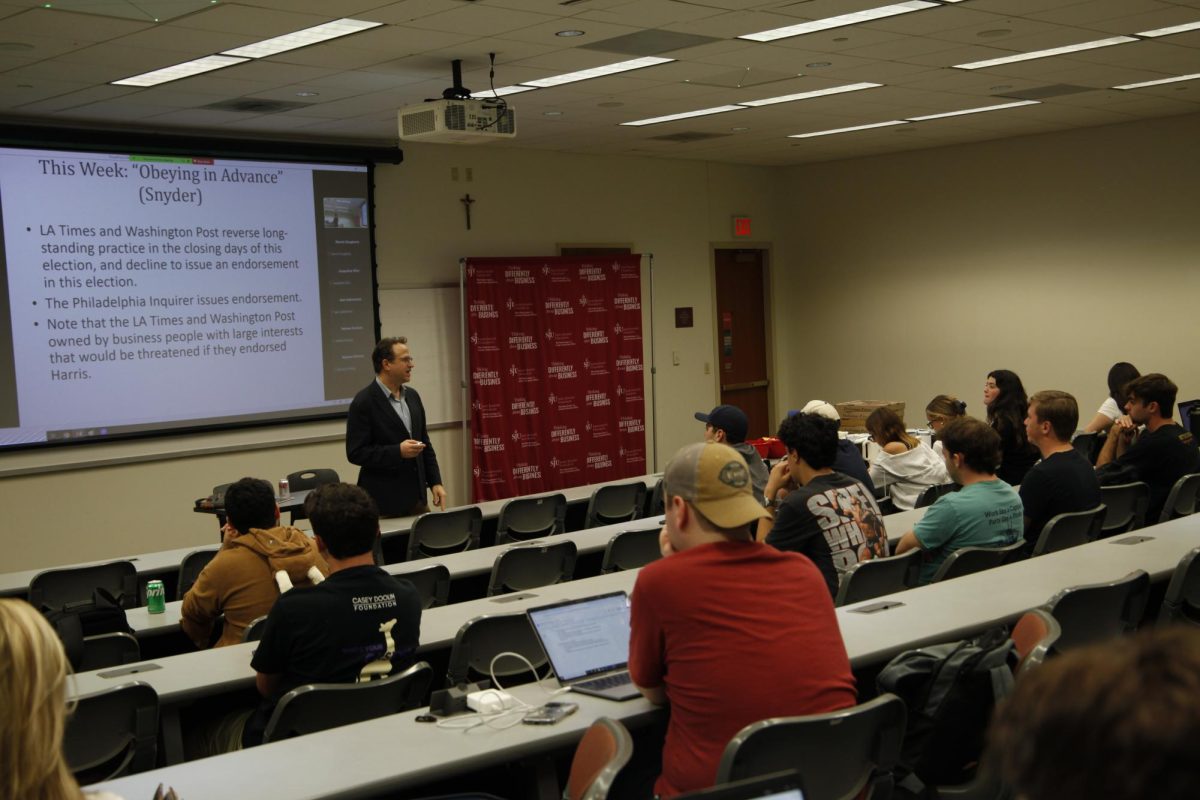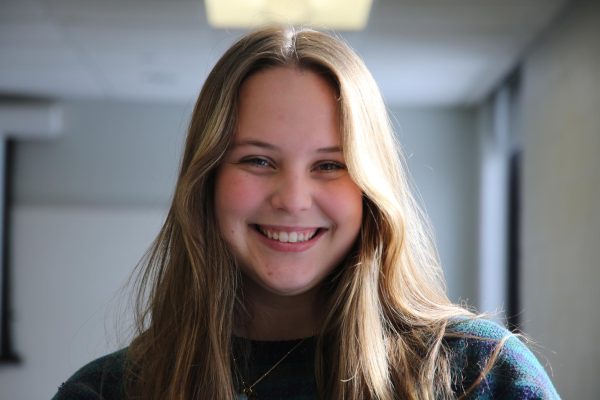The Pedro Arrupe, S.J., Center for Business Ethics hosted David Silver, Ph.D., to speak on the relationship between capitalism and democracy in Mandeville Hall Oct. 31.
Silver is an associate professor and the chair in business and professional ethics at the Sauder School of Business at The University of British Columbia. About 35 students and faculty attended his lecture, titled “Capitalism and Democracy: Navigating a Complicated Relationship,” which introduced ideas on how corporations exercise their influence in democracy.
In his presentation, Silver explained the “complicated” relationship between businesses and democracies and how it could be fixed.
Silver said some of the biggest issues in our capitalist and democratic society pertain to how big corporations handle their role in politics, being either too involved or not involved enough. The answer to this problem is for both the business community and individuals in society to do “self-work” and not be so at odds, Silver said.
“The relationship between capitalism and democracy is currently dysfunctional,” Silver’s presentation slides read. “But it can be repaired if: The business community drops its defensiveness and responds to criticism from society. [And] the rest of society stops reflexively blaming big business for all the ills in society”
Jacqueline Wise, associate professor of finance and associate director of the Arrupe Center, said Silver’s lecture helped prepare students for the real world of business ethics.
“Events like this are important to attend so that you’re prepared,” Wise said. “Because once you go out into the real world … ethical issues arise in your day-to-day. It’s important to have a little bit of a framework of understanding how to think about these things and deal with them.”
Bryan Balmores-Jumarang ’27, a political science major, attended the lecture and said his biggest takeaway was that, regardless of the complexity of the capitalism-democracy relationship, the goal should always be to put the people first.
“It’s very important to find a way to not just make profit, but also increase the overall well-being of the people, while minimizing mistreatment for groups of people,” Balmores-Jumarang said.
Silver said it’s important for people to avoid “disempowerment” in their future careers by listening to their inner “moral sense.”
“You know certain things are right, you know certain things are wrong,” Silver said. “Listen to that voice, nurture it and realize that sometimes it’s gonna be hard to live up to it, but that doesn’t mean you shouldn’t listen to it.”
Silver concluded the lecture by telling students in the room to never accept feeling powerless within their future careers.
“People change organizations if they try,” Silver told The Hawk. “If they work together, if they make good arguments, if they do good planning, and it happens — it doesn’t always happen all at once, but if you don’t try, it won’t happen.”







































